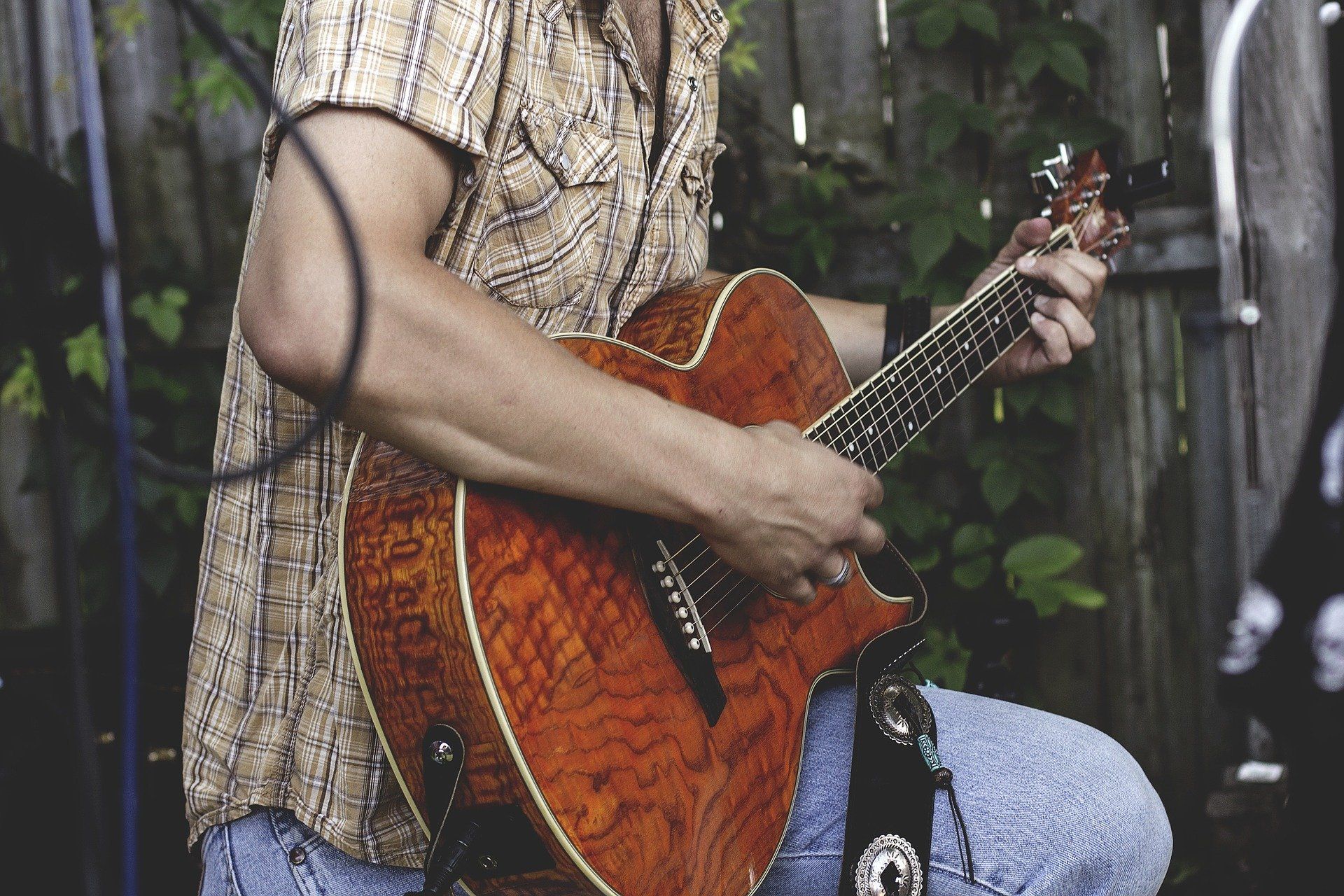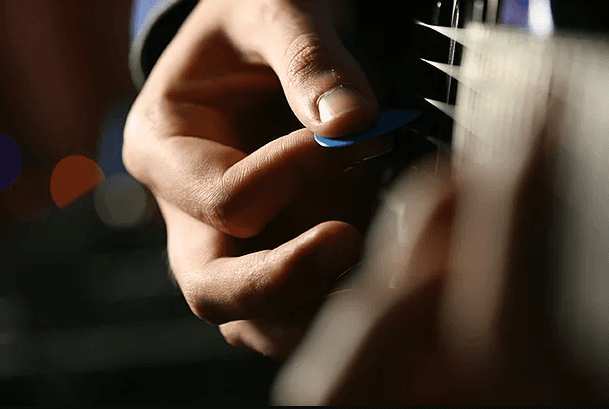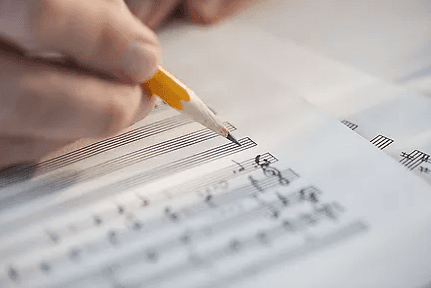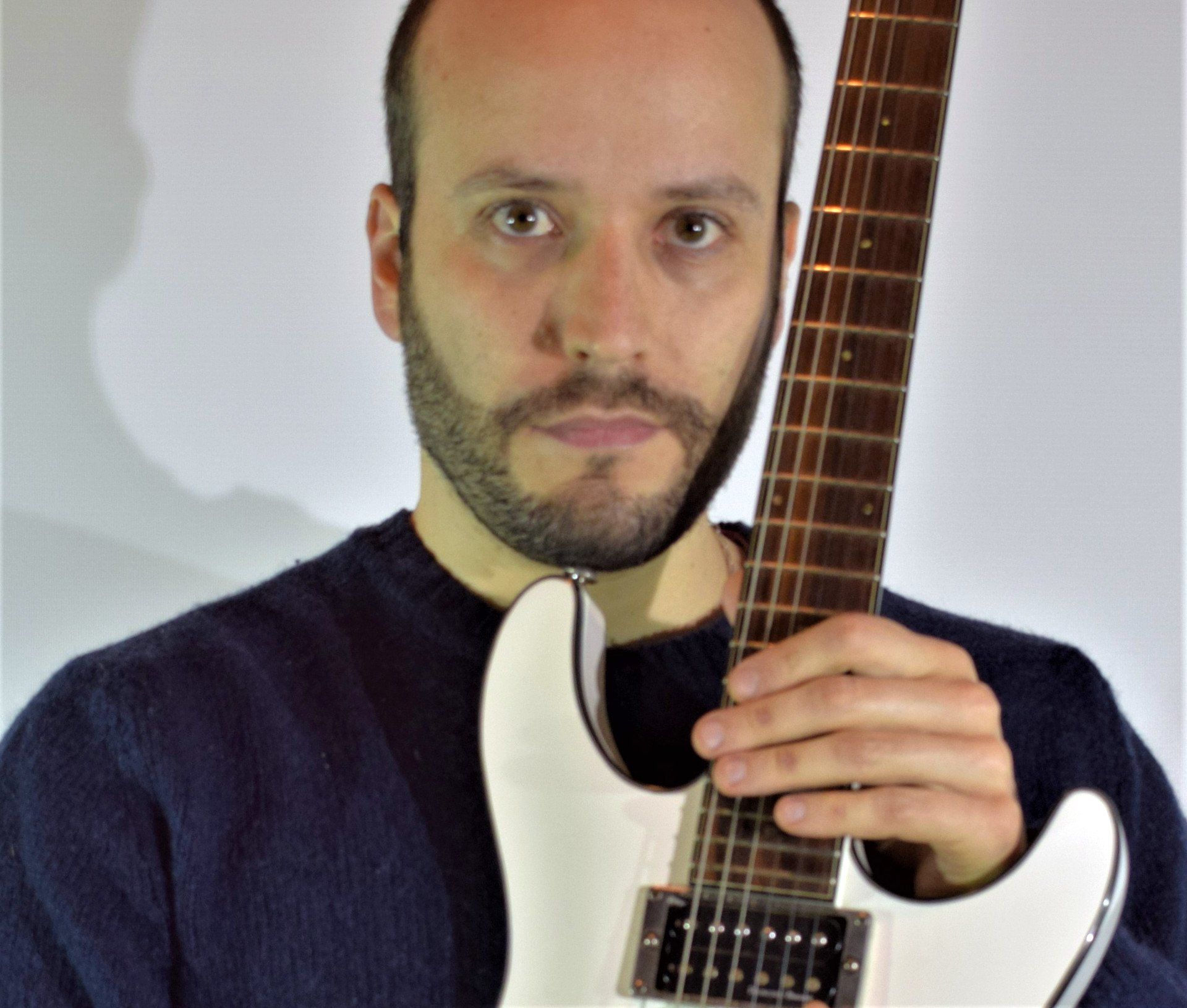HOW TO PRACTICE LIKE A BOSS - 7 Steps to Being Effective, Learning Techniques in Record Time, and Not Feeling Like You Wasted Your Effort

This week we have a special guest on the blog - Max Chiossi of " I Will Teach You to Play Guitar
"!
Max is an awesome player and a great teacher, and in this lesson he'll show you how to improve the quality of your guitar practice using 7 easy tips and strategies.
If you follow the tips in this article, you'll skyrocket your progress and get WAY better results. Improving the quality of your practice time is one of the best things you can do to learn guitar faster - regardless of what style you're into.
Over to Max!
HOW TO PRACTICE LIKE A BOSS
"Knowledge is of no value unless you put it into practice."
- Anton Chekhov
You get back home from school/college/work/gym.
You are ready to dive right into your guitar practice, so you pick up the instrument and start playing something off the top of your head.
Suddenly, your phone rings. It’s a message from your friend on Facebook, and he’s saying you’ve been tagged on a funny photo from yesterday, so you check it out. It’s a funny pic, so you give it a like, leave a comment explaining why alcohol makes you look so silly, and like the comment of another one of your friends on that pic.
Now back to practice!
“I’d better get on with my chops”, you say to yourself, so you put the phone down, pick up the guitar again and start playing.
You totally did not notice that 10 minutes went by in a blink of an eye.
You play for a couple of minutes and look for that lick you were meaning to get down for weeks, when you notice that you forgot to get the milk for breakfast tomorrow. You run to the store, get some milk, along with some tasty snacks you saw and couldn’t resist.
Back home, you pick up the guitar again, and start practising that lick.
You totally did not notice that 30 minutes went by in the blink of an eye.

“I think I’m getting the hang of this”, you think, when you remember that Netflix notified you that the new season of your favorite show was on, so you totally start watching the first episode.
“I’ll watch the first episode and get back to practice”, you naively think.
You totally did not notice that 2 hours went by in the blink of an eye.
Then, you realize it’s getting late to go to bed.
“Oh, I’ll go to bed and continue practising tomorrow. It’ll be fine.”
Don’t tell me you haven’t had many days like this, and I mean MANY. I know, I’ve had plenty, and so have many people I’ve asked.
We all have busy lives, where we are trying to balance things such as:
-Study.
-Work.
-Family.
-Hobbies.
The list could go on and on.
The problem is that if all your days are like this, you are doomed. You cannot pretend to get better at anything if you are not putting in the time and effort required – so we all need to find a way to get our stuff together properly.
In this post, I’m going to share with you my 7 steps to make sure you know how to approach your guitar practice, take back control of your day, and make sure you get things done ASAP.
Like a %&$@ Boss.
1) When you practice, practice.
No, this is not a redundancy.
When you go to work do you suddenly feel the urge to go to the beach, and then do it? Of course not; you wouldn’t last long in a job like that.
However, do you notice why you wouldn’t do it? The problem is that you have a responsibility with your work; not doing it has its consequences, and we know it.
“But hey, guitar practice is not my job, so there’s no problem if I skip it.” Yes, that might be true, but notice how companies often thrive when people do their jobs? When you take things seriously, you usually have good outcomes, or else the company goes broke.
The same principle goes to when you put your mind to practicing. Take it seriously, dammit!
You are practicing because you want to achieve something: you enjoy playing your idols’ songs, want to play in a band, want to sing a romantic song to your significant other, or whatever it is.
Do you think that goal is not worth it?
Does it not deserve to be taken seriously?
It does! Of course it does, so realise that it’s important and treat it as such.
2) Do a 5-10 minute warm-up
Playing guitar can be quite exerting, up to the point that you are doing very intense stuff.
If you are into shred guitar, it’s even worse. In that aspect, you’ll be needing your whole body in top shape.
Just like any athlete would do, it’s always best to start slowly with an adequate warmup. Not only will it make it easier to be effective, but it will also prevent some injuries ( examples here ).
Warming up helps your fingers, hands, elbows, and shoulders get prepared for the work ahead.
Even if what you are playing is not very intense (just strumming some simple chords, for example), it will still be better to warm up so that you can “wake” all your muscles and joints to make for an easier practice.
“OK, I get it, but how should I warm up?” That is a very good question, my young Padawan. Though that answer would take a whole post on itself, here are some basic guidelines to get you started:
- Play low intensity.
Do not attempt to play exercises that are too intense or complex, like the whole solo of “You Don’t Remember I’ll Never Forget” from Yngwie Malmsteen. Instead, try playing simple things.
- Play something that you have already mastered.
This is out of the question, of course. You are not practicing yet, so do not attempt to play out of your level yet.
- Move all your fingers.
You should be focusing on getting all your fingers and joints going, and for this, focusing on playing with all your fingers is most effective. Do not play all power chords with your index and ring finger. Instead, you can try playing something else like chromatic runs.
3) Aim for 30-60 minutes per practice session
You wanted to know how long you should practice? This is it.
It’s more effective to practice in shorter bursts than spending hours and hours non-stop. This is quite obvious when you think about it. Hear me out.
Your energy and mental focus are paramount to learning a skill like guitar playing, which (who would have thought) relies on training your brain and nervous system to execute complex movements automatically. While this might not seem like a big deal, it’s something quite difficult to do.
Do you think it’s any different to learn a complex song by Led Zeppelin than to read an entire 1k-page book about Greek Mythology? Well, yes, it’s different, but that does not mean they are not related . Using your brain for any complex task is always demanding.

When was the last time you sat down to study for your mid-terms and felt it easy to study for a whole afternoon without even realizing it?
Last week?
Last month?
Last year?
Has it ever happened?
I know, you might think that the difference is that you like to play guitar and you don’t like to read about Medieval Agriculture in Eastern Europe, but don’t let that fool you.
Because you like it you feel much more engaged, but you might be failing to realise that your energy levels fall and that, in turn, lowers the effectiveness of your practice session.
If you can get at least 30 or 60 minutes of practice a day, that’s usually enough to improve your skills, provided, of course, that you practice seriously – that is, with intention.
Make sure that you get at least 3 hours of total practice a week and you are all set for success. Oh, and take at least one day off per week. Trust me, it’s for your own good.
4) Focus on one technique at a time
Let’s say you are serious about practicing and you have your 30 minutes of practice.
Next step: avoid focusing on more than one technique per practice session.
Let’s say you want to improve your alternate picking skills and start learning sweep picking. Let’s say you have 30 minutes to practice. You take 5 minutes to warm up a bit, so you have 25 more minutes to practice.
You might feel tempted to practice 12.5 minutes each technique, right?
Well, that might seem right at first, but it’s not the most effective approach. It’s much better to focus on a single technique in a single session, especially if the session is of only 30 mins.
Your brain works more effectively when focusing on a single task.
Gym goers know that you rarely tackle more than one or two muscle groups a day. Now, why is that?
The reason is that by focusing on a single task, you dedicate all your energies to that and avoid wasting time and energy when switching from one task to another, which always takes time to readjust and get your groove on.
Researcher Sophie Leroy published a paper on 2009 named “Why is it so hard to do my work? The challenge of attention residue when switching between work tasks.” , where she introduced the concept of attention residue .
What she discovered is that whenever people switch tasks (any tasks), their minds do not instantly switch their full attention to it, which is what she calls “residue”. It’s difficult for people to do this, which means that when they switch tasks, they end up paying only partial attention (if any) to their new task.
Of course, this does not mean that when you are practicing alternate picking you cannot play anything else but alternate picking. It’s just that you should not focus on any other techniques at that moment.
5) Avoid multi-tasking like the plague
If you are not paying full attention to what you are trying to accomplish, you are only half focusing on what you want to achieve, which means you will hardly get to half of those goals.
Despite what we might think, our brains cannot multi-task. Neither can computers, even though it can seem like it because the tasks get accomplished so fast “at the same time”. We can only share our resources (our brain-time).
This is especially hurtful when we are trying to learn complex finger-hand-arm tasks that require a lot of coordination and concentration. If you are not paying full attention, sooner rather than later you’ll start to assimilate mistakes into your technique, and that in turn will lead to nasty habits that will be difficult to get rid of in the future.
This means, but is not limited to:
-Turn off the TV (no Netflix).
-Turn off YouTube.
-Do not listen to music either!
6) Use the time where you are less likely to be interrupted.
Interruptions are a problem.
You might think it’s no big deal if all you have to do is just read a text, but trust me, it’s much more serious than you think.
For our brains, interruptions are just like multi-tasking, and we have already seen that attempting multi-tasking is a bad idea if you want to be effective and efficient.
That being said, most of the times we cannot prevent interruptions, since usually we have no control over them (phone calls, someone knocking on your door, etc).
However, like Sun Tzu said, “if your enemy is more powerful than you, don’t engage it directly.” , so that’s what you can do. How?
I’ve found that there are two moments/hours that are best to avoid interruptions that you cannot control:
-Early in the morning
-Late at night
Think about it…
Who’s going to call you at 6 am to bother you? Who’s going to knock on your door at midnight?
Yeah, well, maybe the pizza guy might drop by at midnight, but only if you call him to have pizza for your friends on a Friday night party. That would be fine, sure, but apart from that situation, what else could go wrong?
How about you get up 30 minutes earlier so you can have 30 minutes of practice before going to work?
How about you switch Netflix binging for 30 minutes late at night before going to bed for a 30-minute practice right before going under the sheets?
If you don’t want to get up earlier, or are not willing to give up 30 minutes of your favourite series, then you should reconsider if you really want to get better at guitar.
7) Turn off social media!
Ahoy, matey! This is the Holy Grail of all interruptions on this day and age!
I’m sure you already knew this. It feels like everybody whom I tell this to says they knew it, and yet nobody is avoiding it .
Look, I know it’s fun to mess around on social media. I do it, and you likely do it quite a lot too, but it’s important to be responsible about its consequences.
Do you think you can do around 30 minutes of intense, focused, and effective practice without your phone ringing at least once to bother you with a notification?
Do you think that if it does ring you can just continue practicing without feeling the urge to grab it and see what it is?
Do you think that, even if you actually ignore it, you won’t be thinking about it?
Have you forgotten about what Sophie Leroy found out about attention residue?
This is my last, but definitely not least, recommendation. When you are practising, if you are serious, turn off your social media. Turn off your phone’s Wi-Fi and internet access for good. It’s only for a while; the world will be there when you finish.
Final Thoughts
That’s is it for this lesson. I hope you enjoyed it and, above all, I hope I made you think, which is the basis for all improvement.
I would love to know your thoughts on it, so don’t hesitate to leave your comments or contact me directly.
As a closing statement, let me tell you that you can be a Boss if you are willing to do what it takes. These tips will get you started right away.
So start practising seriously, dammit!
About The Author

Max Chiossi is a guitar player and engineer with a laser-focused approach. I have been playing in bands and gigs for over 10 years. If you want to read more from me about effectiveness and Psychology applied to guitar, you can visit my website at www.iwillteachyoutoplayguitar.com , or you can send me an email at max@iwillteachyoutoplayguitar.com.
